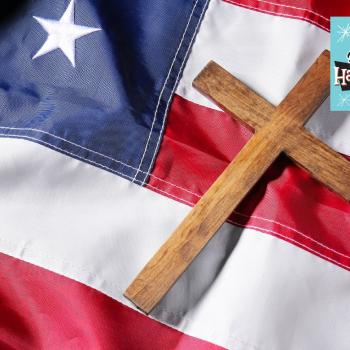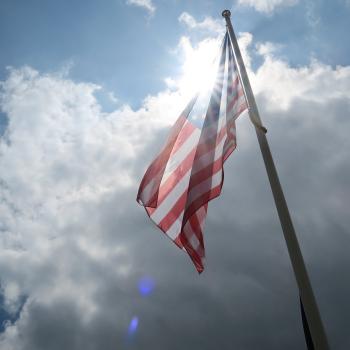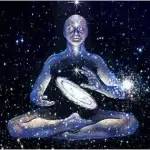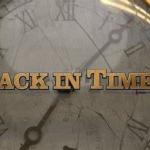In a recent installment of “Sunday Matt” on the Heretic Happy Hour podcast, I reflected on the eerie parallels between our present-day socio-political climate and the dystopian world depicted in Margaret Atwood’s The Handmaid’s Tale. This reflection isn’t merely an exercise in dramatic comparison but a sober realization of the rapid trajectory we’re on—a trajectory that should alarm anyone who values freedom, equality, and justice.
When my wife and I started watching “The Handmaid’s Tale,” I knew it would be heavy sledding, but I was unprepared for how prescient Atwood’s vision was. The show, brutal in its depiction of a theocratic regime that subjugates women at every turn, offers a mirror to our current world, reflecting the dangers of unchecked authoritarianism and religious extremism. Watching the series, I couldn’t help but draw parallels between the fictional Gilead and our own society, where the erosion of rights and freedoms is increasingly palpable.
Atwood wrote “The Handmaid’s Tale” in the 1980s, warning of a possible future where theocratic authoritarianism takes root in America. Fast forward to today, and we find ourselves inching disturbingly close to that reality. The rise of Christian nationalism, the rollback of women’s rights, and the vilification of marginalized communities are not just political issues—they are existential threats to the fabric of our society.
Consider the recent decisions by the Supreme Court, particularly the dismantling of Roe v. Wade. For nearly fifty years, Roe v. Wade stood as a safeguard for women’s reproductive rights. Yet, with a stroke of a pen, it was undone, demonstrating how fragile progress can be. This rollback is reminiscent of the flashbacks in “The Handmaid’s Tale,” where incremental changes paved the way for totalitarian rule. Atwood’s work serves as a chilling reminder that such transformations don’t happen overnight but through a series of calculated moves that go unchecked by a complacent populace.
What struck me most about the show is the complicity required to sustain such a regime. It’s not just the leaders and the “guardians”—it’s the ordinary people who turn a blind eye, the bystanders who do nothing, and the collaborators who actively participate in oppression. In this brutal reflection of our potential future, we see women who enforce the subjugation of other women, men who carry out brutal acts without question, and a society that normalizes what once was the abnormal. This complicity is mirrored in our world, where silence and inaction in the face of injustice are rampant.
Look at the increasing rhetoric around so-called household voting—essentially stripping women of their individual voting rights and placing them under the control of male heads of households. Such ideas, once considered fringe, are now being floated by mainstream conservative voices. This isn’t just a political maneuver; it’s a direct assault on the autonomy and equality of women, pushing us closer to a reality where women are relegated to second-class citizenship.
Furthermore, the attacks on LGBTQ+ rights, the continued systemic racism, and the pervasive xenophobia reflect a society moving backward, not forward. Policies and laws that discriminate against marginalized groups are not just about maintaining the status quo but actively reversing hard-won progress. The parallels to “The Handmaid’s Tale” are stark—both depict a world where those in power use fear, violence, and oppression to maintain control.
We must ask ourselves: How did we get here, and more importantly, how do we stop this descent? It starts with recognizing the signs and refusing to be complicit. We need to stand up against these injustices, speak out against oppressive policies, and support those who are fighting for their very right to survive in this country. It’s about solidarity and action, not just for ourselves but for the future generations who will inherit the world we leave behind.
Atwood’s tale is a warning, but it also serves as a call to action. It challenges us to confront the harsh realities of our world and to fight against the forces that seek to divide and conquer. We cannot afford to be bystanders in this fight. As history has shown, silence and inaction only enable oppression to thrive.
And so, as we navigate these tumultuous times, let’s draw inspiration from “The Handmaid’s Tale” not just as a cautionary tale but as a rallying cry. Let’s fight for a world where freedom, equality, and justice prevail over tyranny and oppression. Our future depends on it. Let’s ensure that when history looks back on this period, it sees a society that stood up for what was right, rather than one that succumbed to fear and hatred.
Check out the Heretic Happy Hour podcast wherever you listen to podcasts: Spotify, iTunes.
Also, if you’ve been digging my work on here, and want to see me be able to continue writing as close to full-time as humanly possible, please take a look at my Patreon page at www.patreon.com/mjdistefano. Even $1 a month helps bigly!















